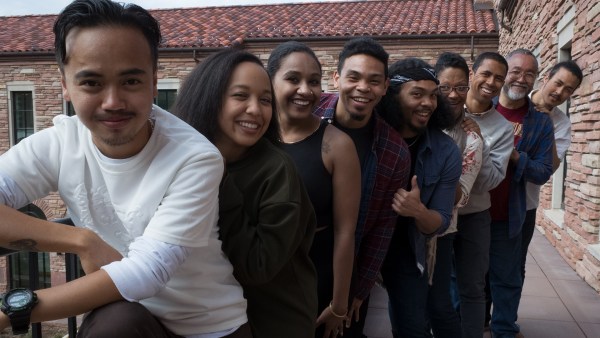Legacies of Postwar Japan’s “War Bride” Era
Japanese American National Museum
100 North Central Avenue
Los Angeles, California 90012
Telephone: (213) 625-0414
2018-06-30, 09:00-17:30 PDT (Local Time)

Presented in partnership with the Hapa Japan Project at USC Shinso Ito Center for Japanese Religions and Culture.
During and shortly after the US-Allied Occupation of Japan, the Japanese women who fraternized with soldiers often met opposition from their families and were shunned by other Japanese. Many mixed-raced children faced severe prejudice for being “impure” and born from the former enemy.
This symposium brings together various stakeholders to tell the stories of the war brides and their children. By focusing on the memories, realities, and legacies of this community, this groundbreaking gathering will create opportunities for listening, discussing, healing, and empowering attendees.
Symposium Schedule
9:00am – 9:30am Welcome and Opening Remarks
- Duncan Williams (USC Shinso Ito Center and Hapa Japan Project)
- Fredrick Cloyd (author of Dream of the Water Children)
9:30am – 10:40am Session 1 – Occupation/Migration: Women, Children and the U.S. Military Presence
- Etsuko Crissey (author of Okinawa’s GI Brides: Their Lives in America)
- Mire Koikari (University of Hawai‘i; author of Cold War Encounters in US-Occupied Okinawa: Women, Militarized Domesticity, and Transnationalism in East Asia)
- Elena Tajima Creef (Wellesley College; author of Imaging Japanese America: The Visual Construction of Citizenship, Nation, and the Body and Following Her Own Road: The Life and Art of Mine Okubo)
10:40am – 11:50am Session 2 – Difference and Other: War-Bride and Mixed-race Children’s Representations
- Margo Okazawa-Rey (Fielding Graduate University; Professor Emeritus, San Francisco State University)
- Sonia Gomez (University of Chicago; Visiting Scholar, MIT; author of From Picture Brides to War Brides: Race, Gender, and Belonging in the Making of Japanese America)
11:50am – 1:15pm LUNCH BREAK
1:15pm – 2:45pm Session 3 — Book Launch of “Dream of the Water Children: Memory & Mourning in the Black Pacific”
- Fredrick D. Kakinami Cloyd (author of Dream of the Water Children)
- Curtiss Takada Rooks (Loyola Marymount University)
- Angela Tudico (Archives Specialist, National Archives at New York City)
2 :45pm – 3 :00pm COFFEE/TEA BREAK
3 :00pm – 5 :30pm Session 4 – Film and Discussion of “Giving Voice, The Japanese War Brides”
- Miki Crawford (Producer/author of Giving Voice, The Japanese War Brides)
- Kathryn Tolbert (Washington Post; Producer/Director of Seven Times Down, Eight Times Up: The Japanese War Brides)
5:30pm Closing Remarks: Fredrick Cloyd
For more information and to RSVP, click here.







